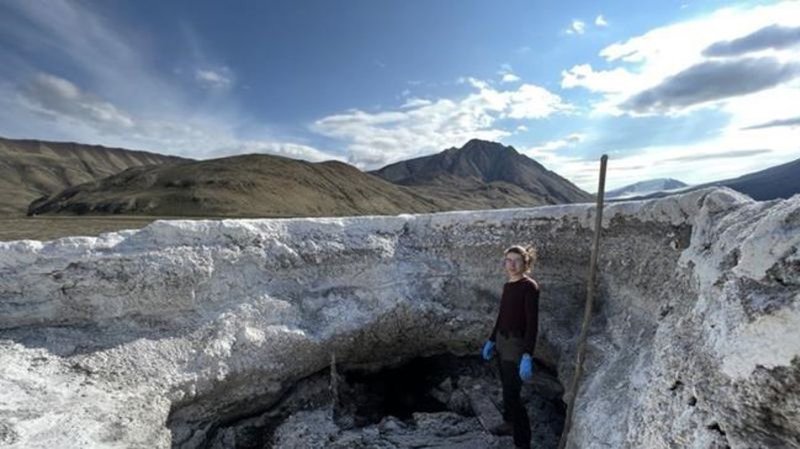
Scientists head to Nunavut island to help solve Mars methane mystery
AXEL HEIBERG ISLAND, NUNAVUT — A team of researchers has travelled to a remote Arctic island in the hopes of better understanding the possibility of life on Mars.
Astrobiologist Haley Sapers, an adjunct professor at York University in the Lassonde School of Engineering, is leading the team at the McGill Arctic Research Station, or MARS, on Axel Heiberg Island. The uninhabited island is in Nunavut’s Qikiqtaaluk region and has conditions similar to the red planet.
Under the 24-hour midnight sun, they plan to study super-salty cold springs that release methane on Gypsum Hill, about a 45-minute hike from the research station. They also plan to take methane readings from the atmosphere and carry out a simulated Mars Rover mission.
“Methane is a really important atmospheric gas here on Earth because it contributes significantly to global warming,” said Sapers, a visiting scientist with the California Institute of Technology. “It’s also a really interesting gas on Mars … And we don’t understand exactly where it’s coming from or where it’s disappearing to.”


